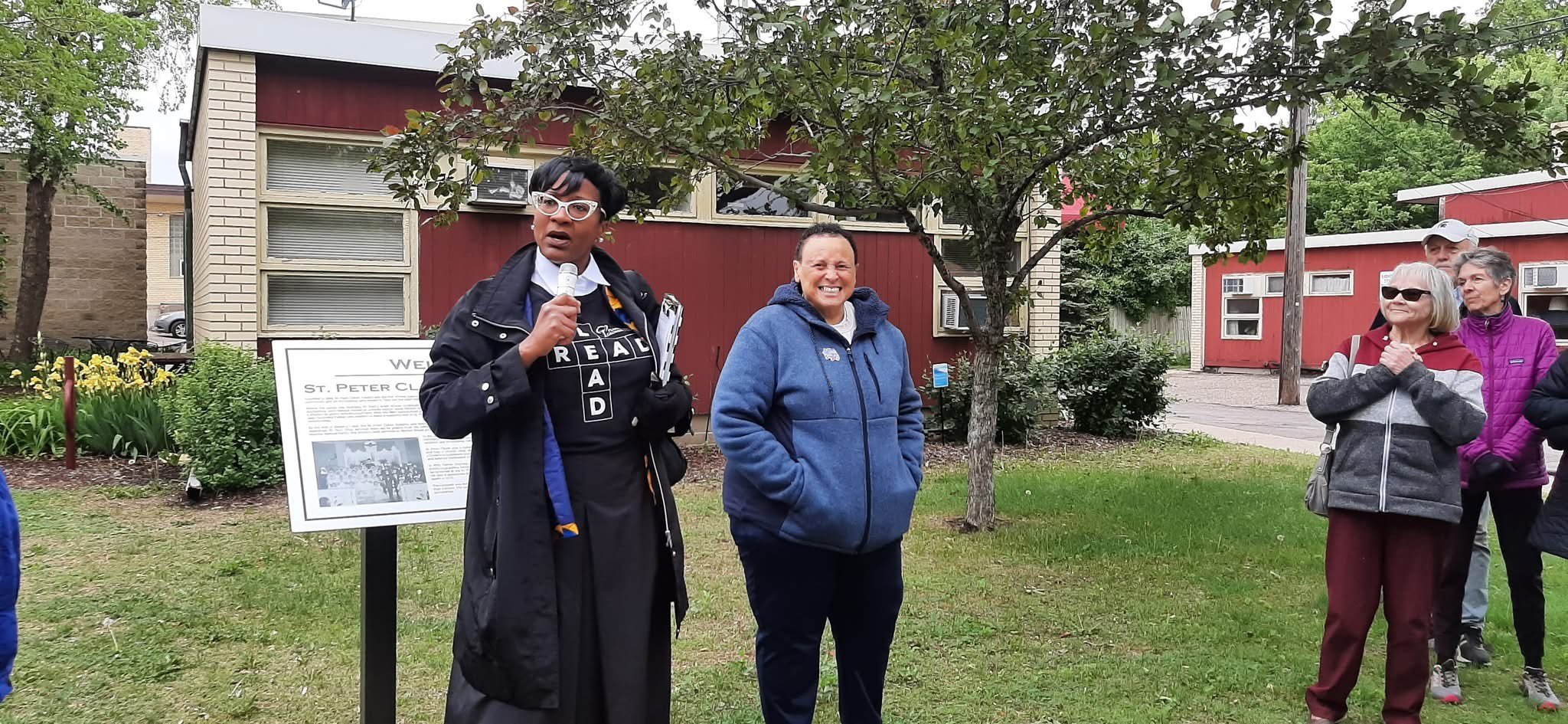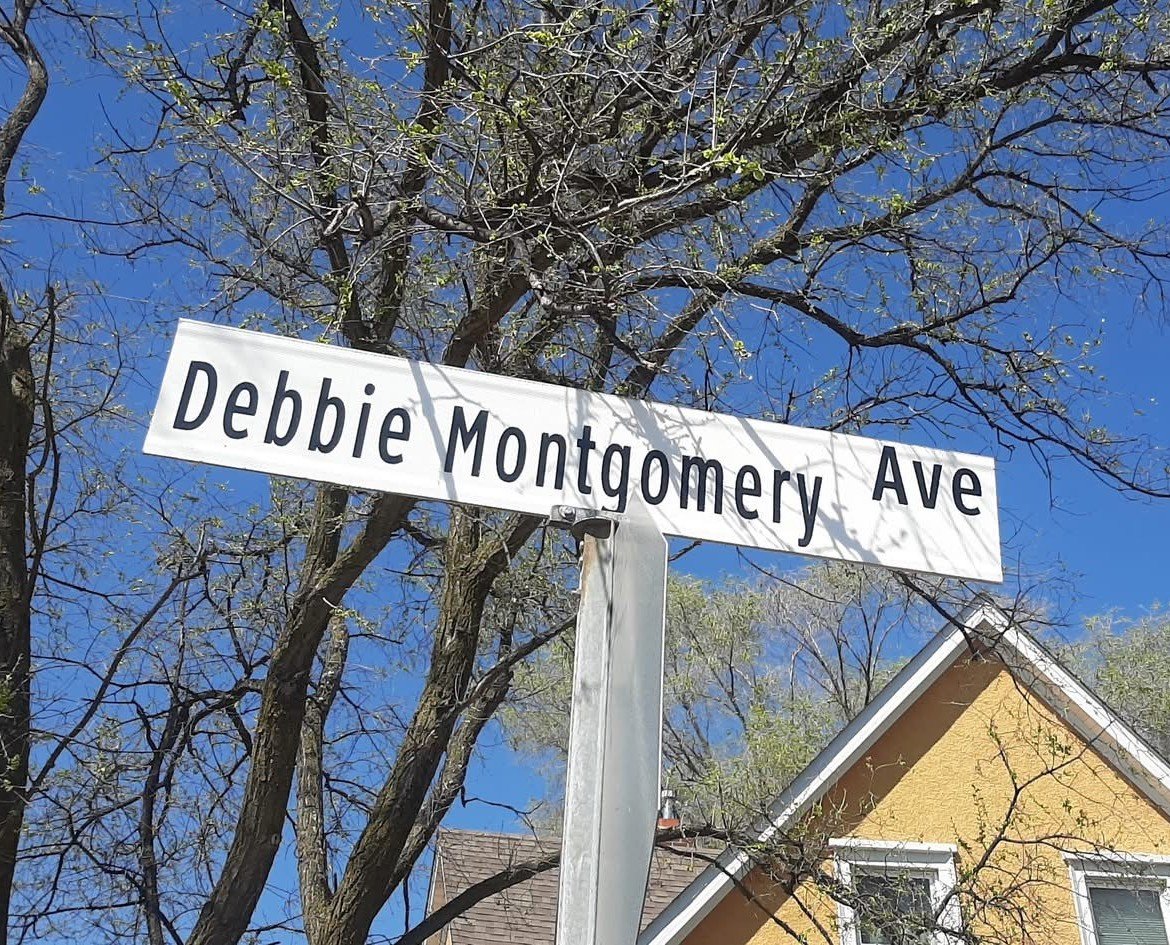Rondo Neighborhood Bus Tour Showcases Legacy of Rondo Neighborhood
By: Alex Nellis
The Rondo neighborhood in St. Paul has a rich cultural history. On May 17, 2025, Planting People Growing Justice Leadership Institute hosted a Rondo Neighborhood Bus Tour. The tour takes participants on a historical journey through the Rondo community.
Throughout the tour, Dr. Artika Tyner delves into how the Rondo neighborhood has evolved over time. This tour also had a special guest, Miss Debbie Montgomery, who is St. Paul’s first woman police officer, and the first Black woman to be elected to the St. Paul City Council.
The event begins at the Hallie Q. Brown Community Center, which has been a cornerstone of Rondo for over a century. In the early 1900s, the Community Center served as a place for members of the community to meet up and socialize. The Center also provided access to valuable resources like housing, jobs, education and healthcare for neighborhood residents.
The history discussed during the tour dates back to Rondo’s first settler, Joseph Rondeau, in 1858. African American churches, businesses and communities began to settle in the late 19th century. Since then, the Rondo neighborhood has been the center of St. Paul’s African American community.
In the 1910s, the Rondo community started to grow. African American newspapers such as St. Paul Recorder, The Appeal and The Northwestern Bulletin spoke about Rondo’s community interests and provided representation for the needs of residents. Shortly after, Rondo community members banded together to create the St. Paul chapter of the NAACP in 1913. One Rondo resident, Roy Wilkins, would later lead the NAACP at the national level.
Around the 1930s, the railway industry began booming, and local businesses flourished. Students flourished academically, as evidenced by high literacy rates. Networking opportunities and social clubs began to open up for residents. Affordable housing became much more accessible with the strong economy. The community was thriving, and many Rondo families were upper-middle and middle class as a result. By the 1950s, around 85% of the African American population in St. Paul lived in the Rondo neighborhood. For much of the 20th century, Rondo was a cultural and art hub of the Black community in St. Paul.
In the 1956, the Department of Transportation started construction on Interstate 94 to link the downtown areas of Minneapolis and St. Paul. City administration decided that the highway would run through the Rondo neighborhood, which threatened to displace hundreds of families. Despite strong resistance from prominent community leaders like Reverend Floyd Massey Jr. and Timothy Howard, the city moved ahead with the project, causing at least 700 families to lose their homes and forced closure of over 300 businesses. Residents were approached by the city and forced to relocate. In the 1960s, the completion of I-94 split Rondo Avenue in half, destroying a large number of homes and businesses.
After the destruction of Rondo Avenue, former residents Marvin Roger Anderson and Floyd G. Smaller founded Rondo Days in 1983. This is a yearly celebration of the Rondo community, which includes a parade, festival, dinner, and several events to bring the community together. A number of other commemorations of Rondo have begun over the years, including the construction of the Rondo Community Library in 2006, and Macalester College’s addition of a “Rondo History Harvest” course educating students on the community’s historical roots.
The spirit of the Rondo community has continued to live on all these years later. Famous businesses and locations such as Hallie Q. Brown Community Center, the Penumbra Theatre, Lip Esteem, Flava Coffee and Café, Golden Thyme Restaurant and Bar, and Planting People Growing Justice amongst many others, have persevered and remain open to this day. Some of the businesses of Old Rondo were archived on a database compiling a historical account of Rondo businesses.
This is just a small sampling of the rich history of the Rondo community that the annual neighborhood bus tour spotlights. The tour provides a unique opportunity for participants to meet Rondo residents, and explore the arts, culture, history, businesses, and families that are at the heart of the Rondo community. The tour continues to showcase the inspiring legacy of Rondo.
Check out the Planting People Growing Justice Leadership Institute website for more information about our Rondo Renaissance programs and services. Follow us on social media for updates about the project at Planting People Growing Justice Leadership Institute.



